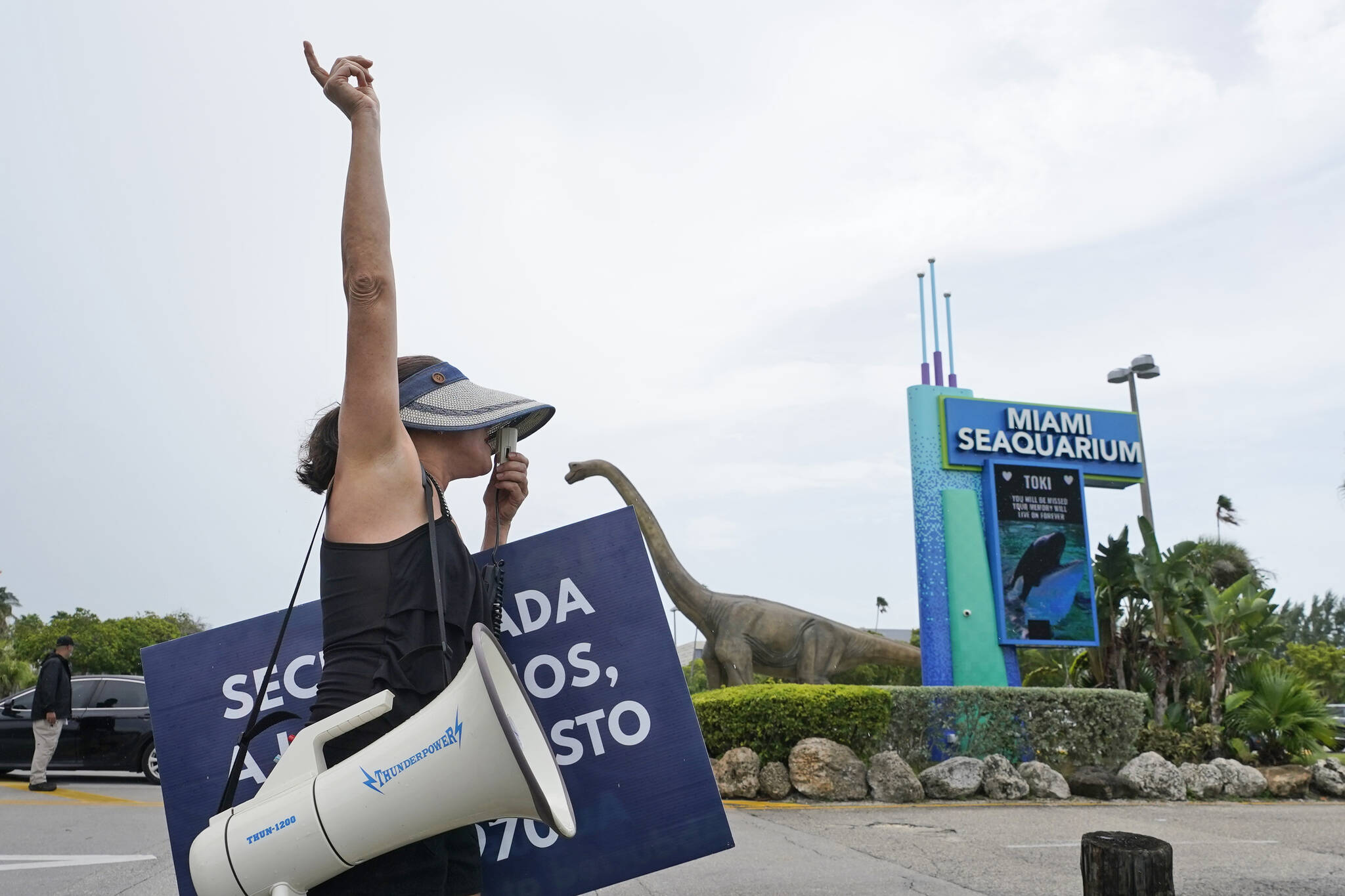Near the water’s edge dozens of advocates — some wearing shirts calling to protect the whales and the Salish Sea, others adorned with abalone and orca jewelry — gathered Saturday evening to reflect on the loss of the last surviving southern resident orca in captivity.
They held each other, wept, shared stories of hope, anger and called the crowd to action.
It was off the shores of this island where the late Don Goldsberry and Ted Griffin captured endangered southern resident orca calves more than five decades ago. Among those young orcas taken from their family was a female called Tokitae, also known as Lolita, and now given the Lummi name Sk’aliCh’elh-tenaut, for the village in Penn Cove she was taken from.
She was estimated to be about a dozen feet long and around 4 years old when she was captured, loaded on a flatbed, trucked to the airport and flown to Miami where she’d spend the rest of her life in a small tank.
She died at the Miami Seaquarium on Friday afternoon, as the last surviving southern resident killer whale still in captivity. She was believed to be around 57 years old. Ocean Sun, or L25, is one of her closest relatives and her presumed mother. She is still alive.
On Saturday, as the evening sun lit up her smiling face, Debora Toro reminisced on her love for Sk’aliCh’elh-tenaut and the community that rallied for her.
“She’ll come in your dreams, and then she’s got your heart,” said Toro, who helped advocate for the orca’s return. “And then you meet this being and you look her in the eye and then she has your soul. The rest of your life is only all about her. She brought us here. She brought us together.”
Addressing dozens of mourners near the Langley whale bell, Toro said Sk’aliCh’elh-tenaut would still come home, in whatever form she comes home.
From the early ’60s to late ’70s, some 270 orcas were captured in the Salish Sea, the transboundary waters between the U.S. and Canada. At least 12 of those orcas died during capture, and more than 50 were kept for captive display.
The southern residents took the greatest hit, losing at least 47 orcas to capture, or death in the process.
The southern resident orcas haven’t recovered from the capture era, dwindling to just 73 as of the latest census, one of the smallest population counts on record. The southern residents have been listed as endangered under the Endangered Species Act for nearly two decades.
Today, the orcas’ meal of choice, Chinook salmon, face habitat choked off by dams and culverts. Ships traveling through the southern residents’ home make noise that masks the same sonic sweet spot orcas use to hunt and communicate.
For Tokitae, the capture era went on as she spent her remaining days in a small tank.
Lummi Nation led the effort to free Sk’aliCh’elh-tenaut, seeking to retire her to a netted cove where she could spend her final years in her home waters and hear, see and interact with her family.
“The Lummi Nation has fought so long and so hard to bring home their relative,” Toro said. Lummi members are still working to bring her home.
After decades of declining to free her, the Miami Seaquarium, which was recently purchased by The Dolphin Co., entered an agreement in March with Friends of Toki, a Florida nonprofit, to return the orca to an ocean sanctuary here.
Howard Garrett, founder of the Orca Network, credited Tokitae as being the “driving force” behind the movement to bring her home.
“I promise you,” he said, “only she would able to assemble this completely impossible coalition of the dolphin park owner, the animal rights advocates, the Lummi tribal matriarch, the developer billionaire, the football owner billionaire, all into this coalition working together with a single purpose: Bring her home.”
READ ALSO: Florida aquarium returning Lolita the orca to the Salish Sea after 53 years in tank

